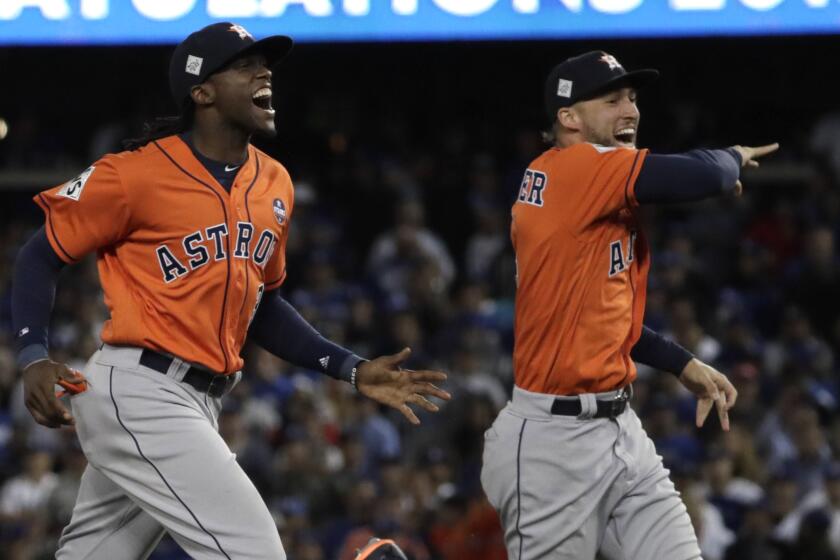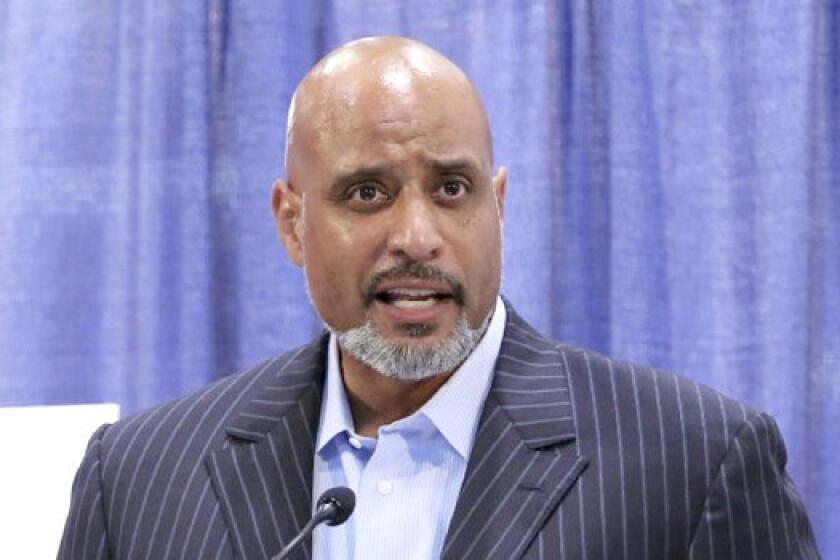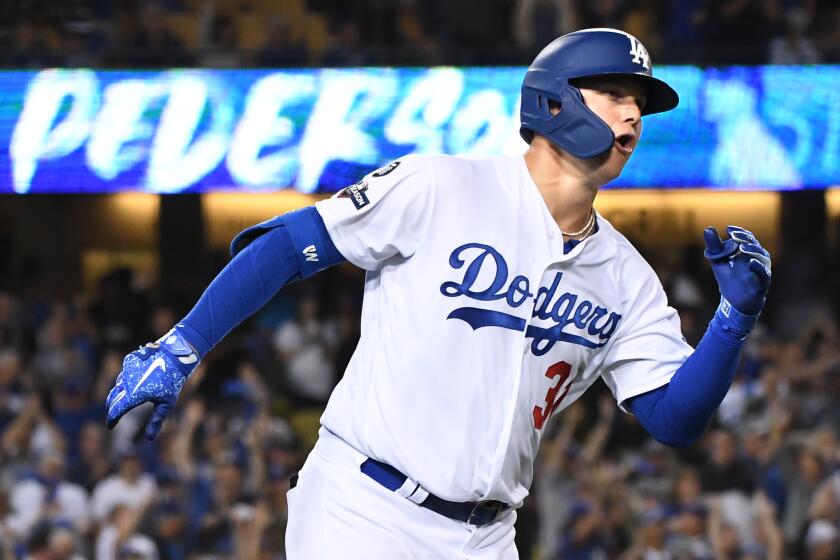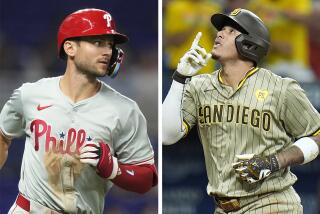Angels and Dodgers trades are rare, but one was memorable
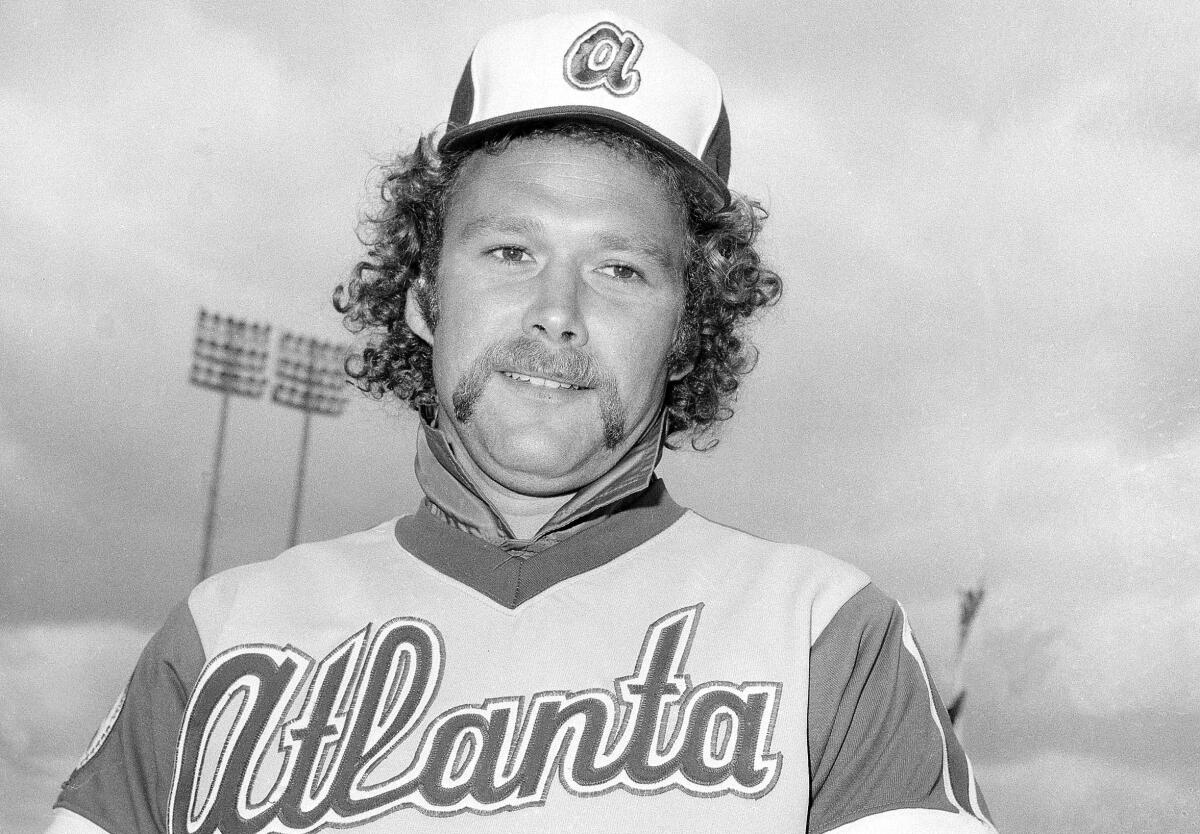
- Share via
The Dodgers and Angels do not often do business with each other. Joc Pederson and Ross Stripling might have been spare parts on the Dodgers’ deep roster, but the trade that nearly landed them in Anaheim would have been the biggest deal between the teams since 1972.
That deal involved seven players, one of whom would become a first-ballot Hall of Famer and the first African American manager in major league history, another who would become baseball’s first free agent. For all the headlines at the time, and for all the historical dimensions since then, the trade had a modest impact on the Dodgers and a smaller impact on the Angels.
However, if the Dodgers had not said no when the Angels asked for a struggling young player as a final piece in the trade, the deal would have dramatically altered the course of both franchises.
In 1972, for the second consecutive winter, the Dodgers pursued Angels pitcher Andy Messersmith. They got him, along with third baseman Ken McMullen. They gave up five players, most notably two-time most valuable player and 14-time All-Star Frank Robinson.
“When you come off an 8-11 year and are involved in this kind of trade, it’s a good feeling if just from standpoint of ego,” Messersmith told Ross Newhan of The Times. “The Dodgers gave up a lot of players and left themselves open for criticism.
“Then, too, it’s tough getting motivated when you’re only fighting for fourth place and drawing 6,000 fans.”
It should have been anathema: An entire team decided seeking any edge was worth it, no matter the moral and ethical damage.
Messersmith was not kidding. His last start in Anaheim attracted a crowd of 5,971. In 1973, the Angels hired a college coach, Bobby Winkles of Arizona State, to become their fourth manager in five seasons. He was fired in 1974. The Angels would not make their playoff debut until 1979.
With the Dodgers, Messersmith won 20 games in 1974, finishing second in the National League Cy Young voting and starting Game 1 of the team’s first World Series appearance in eight years.
After the 1975 season, which he played without a signed contract, an arbitrator ruled he was a free agent. The Atlanta Braves signed him for $1 million over three years, then asked him to wear “Channel” rather than his last name above his uniform number 17 to advertise the Braves’ TBS television channel.
McMullen never played much for the Dodgers because Ron Cey asserted himself as the team’s third baseman.
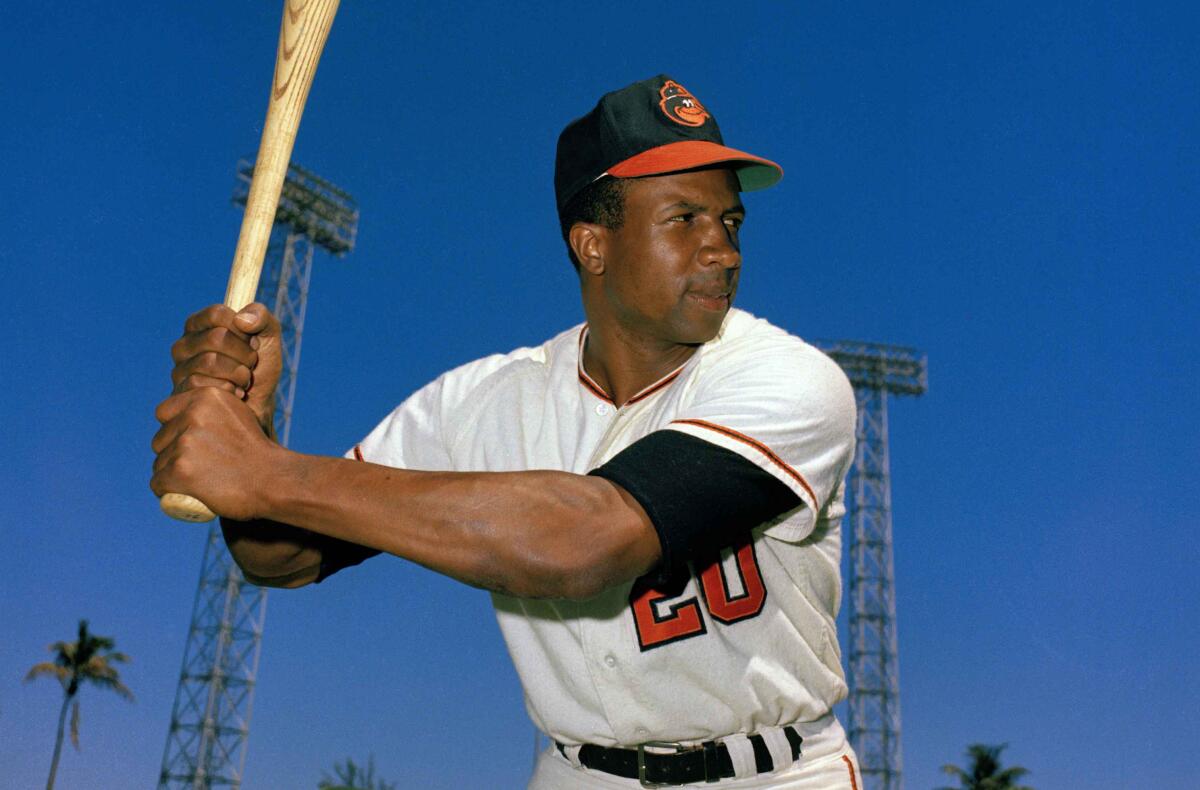
The trade to the Angels allowed Robinson, 37, to take advantage of the new designated hitter rule in the AL. He hit 30 home runs for the Angels in 1973, was traded to the Cleveland Indians in 1974 and became the Indians’ player-manager in 1975, making him MLB’s first African American manager.
Other notable players acquired by the Angels included pitcher Bill Singer, a 20-game winner and All-Star in 1973, and the versatile Bobby Valentine, whose promising career was derailed when he broke his leg crashing into the outfield fence in Anaheim in 1973.
In the 43rd paragraph of his reconstruction of the trade talks, Newhan wrote that the Angels responded to the Dodgers’ interest in Messersmith with this initial proposal: Messersmith for Robinson, Singer, Valentine and a young third baseman with an erratic arm and an uncertain bat.
The kid’s name was Steve Garvey. The Dodgers wouldn’t include him in the deal, then moved him to first base. In 1974, he was the NL most valuable player, and he made the first of eight consecutive All-Star appearances. He played in four World Series for the Dodgers, and he drove in more runs than anyone in the franchise’s history in Los Angeles.
This is not to say that Pederson or Stripling — or any of the youngsters who would have rounded out the deal — will blossom into a star along the lines of Garvey.
But the first major trade between the Dodgers and Angels was such a momentous occasion that it warranted an editorial in The Times, dramatizing the risk of trading with the team across town.
Tony Clark, chief of the players union, demanded that the delayed trades be resolved promptly to free the players involved from “a state of limbo.”
“If you get burned in a deal with the Pirates, they’ll be laughing at you in Pittsburgh,” the editorial read. “But at least the folks in L.A. can’t hear the laughter.
“Not so if a team 25 miles away undresses you. You may then expect to be kept in constant awareness of your cerebral nudity.”
In the 60 years since the Angels were born — in Los Angeles, as the American League representative to the NL rival Dodgers — the teams rarely have traded with one another.
There have been 15 deals between the teams, according to the Baseball Reference database, but six simply involved the sale of a player’s contract, with no player traded in return. Of the nine actual trades, the players tended to be backup catchers (Drew Butera, Ellie Rodriguez) and fringe relievers (Howie Reed, Dave Sells).
Infielder John Werhas, traded from the Dodgers to the Angels in 1967, found little success for either team but made a great impact after his playing career, in a ministry that included serving as the clubhouse chaplain for both teams.
A proposed trade that would have sent Joc Pederson and Ross Stripling from the Dodgers to the Angels fell through, an outcome both players are happy about.
The second-biggest deal between the teams was the one that is best remembered for a tweet.
In 2014, as part of his extreme makeover of the Dodgers’ roster, president of baseball operations Andrew Friedman traded second baseman Dee Gordon and pitcher Dan Haren to the Miami Marlins for four players that included pitcher Andrew Heaney. Friedman then flipped Heaney to the Angels for second baseman Howie Kendrick.
Heaney remains with the Angels and is expected to anchor their starting rotation. Kendrick, now with the Washington Nationals, hit the grand slam that eliminated the Dodgers from the playoffs last fall.
Kendrick, at least, spent two seasons with the Dodgers. Heaney spent about two hours with the Dodgers, after which he sent this classic tweet: “Well, @Dodgers, we had a good run! Great to be a part of such a storied franchise. #thanksforthememories”
More to Read
Are you a true-blue fan?
Get our Dodgers Dugout newsletter for insights, news and much more.
You may occasionally receive promotional content from the Los Angeles Times.

